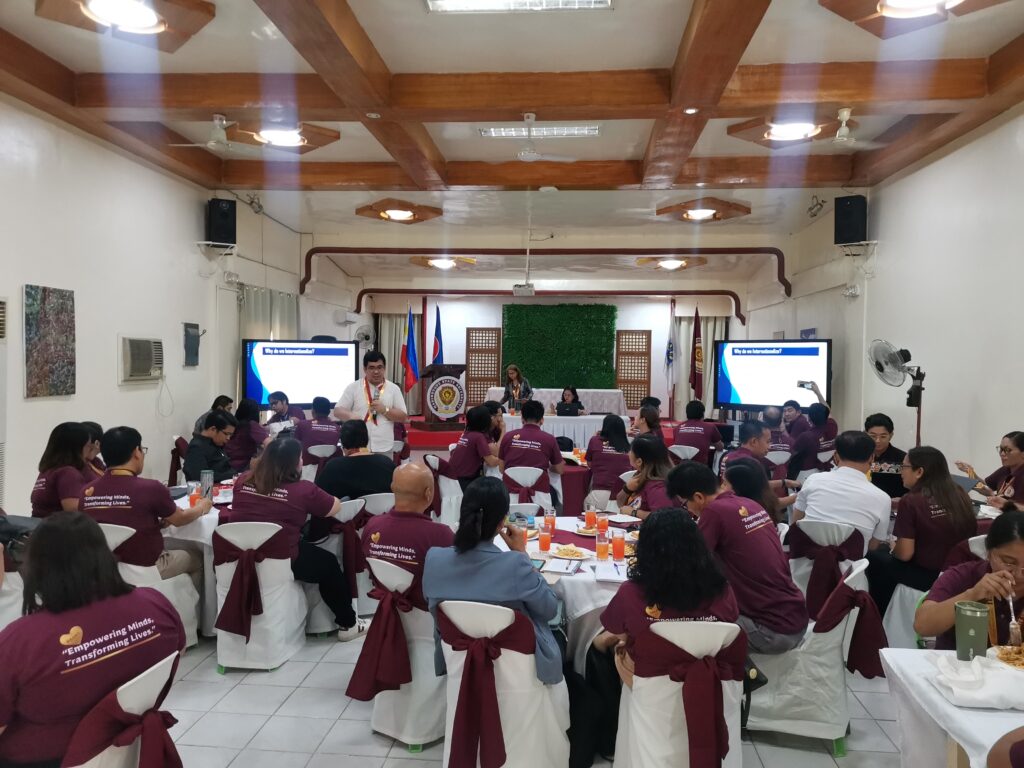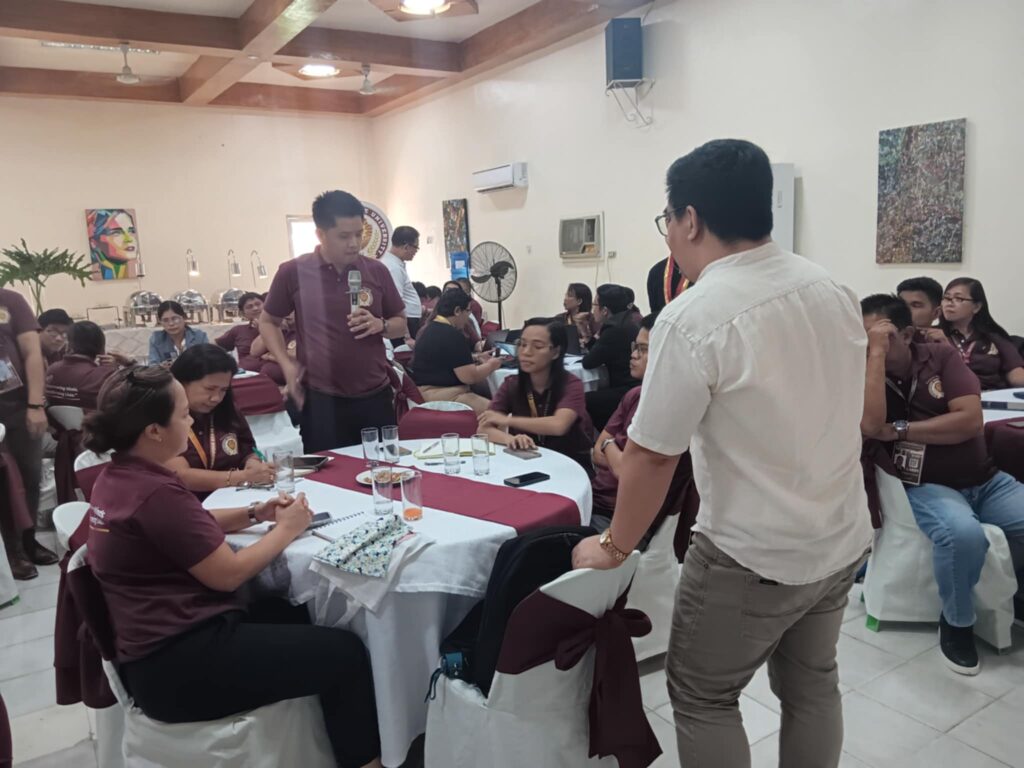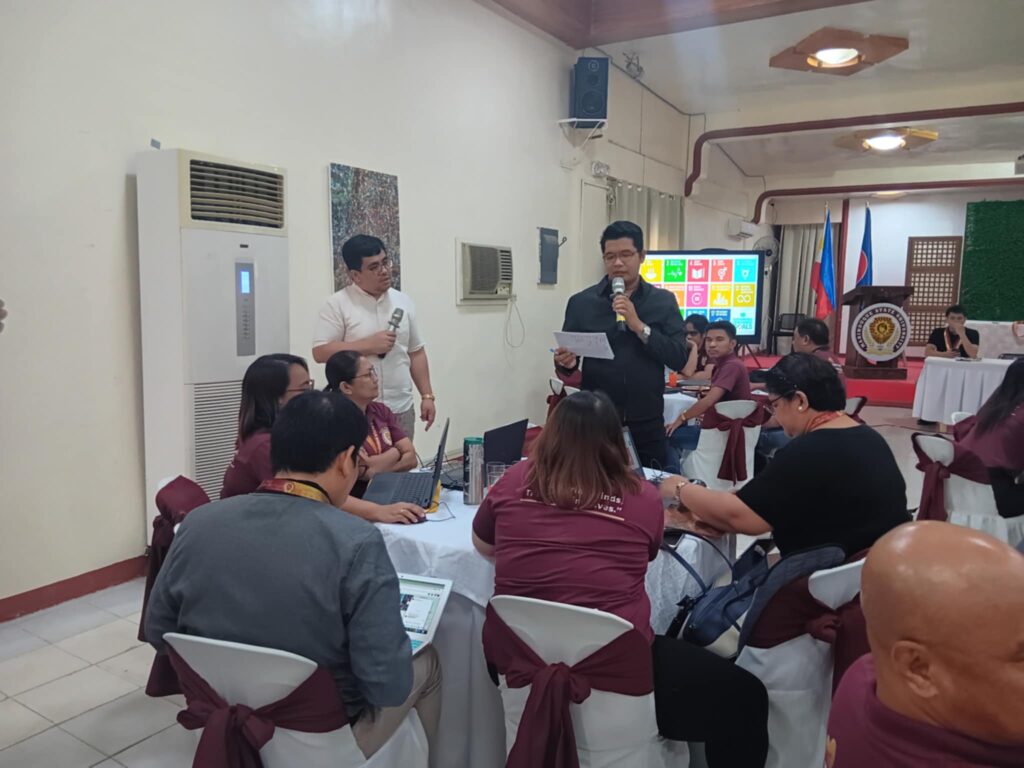
October 9-10, 2024
The two-day orientation-workshop held by Marinduque State University (MarSU) in collaboration with CHEDRO MIMAROPA was not just an event, but the beginning of a transformative process aimed at enhancing the university’s international profile and its alignment with global education standards. The focused discussions on Internationalization (Izn), Global Citizenship Education (GCED), and global rankings like the Times Higher Education (THE) Impact Rankings and World University Rankings for Innovation (WURI) provided MarSU with the tools and insights needed to position itself more effectively on the world stage.
During the event, it became clear that this initiative was part of a larger strategy to elevate MarSU’s academic offerings, community engagement, and sustainability practices. By closely examining their projects through the lenses of the Sustainable Development Goals (SDGs) and global ranking criteria, MarSU, led by the President Dr. Diosdado Zulueta with the IRO Director Mr. Raoul Magcamit, was able to identify areas for growth, enhancement, and future collaboration.

One of the key takeaways from the event was the emphasis on strengthening the documentation and presentation of MarSU’s projects. MarSU initiatives like Project VAPERS, Lugpong, and TBI (Technology Business Incubation) are already making significant impacts in the community, but the workshop highlighted the need to better capture and communicate their outcomes. For these projects to stand out on a global platform like WURI or in THE Impact Rankings, it is essential to present a clear, data-driven narrative that showcases the initiatives’ direct impact on local development, sustainability, and innovation.
The CHED MIMAROPA team, headed by Director Dr. Jimmy Catanes, alongside with SEPS Ms. Merigen Cafino, ESII Dr. Kris Hanley Dalan, PTS III Mr. Kenmark Hernandez, and Ms. Ma Melinda Reyes, had given the feedback on how to write compelling project abstracts and impact statements was invaluable. It reinforced the importance of crafting narratives that are not only well-written but also strategically aligned with the broader goals of global education frameworks, such as the SDGs. The recommendation to use localized project names and to avoid jargon was also an essential insight. This would make the projects more relatable and accessible, both for local stakeholders and the international academic community.

In the coming weeks, MarSU will work to finalize these project descriptions and ensure that they reflect the university’s ongoing commitment to sustainability, innovation, and community development. This requires collecting documentary evidence that can substantiate the claimed impacts, such as student and community testimonials, research data, and measurable outcomes. By strengthening this evidence base, MarSU can effectively demonstrate how their programs contribute to real-world change, meeting the criteria set by both THE Impact Rankings and WURI.
As MarSU moves forward with these initiatives, it will continue to focus on the critical intersection between academic excellence, community engagement, and global citizenship. The work done during the workshop has set the stage for a more strategic approach to internationalization, with an emphasis on sustainability and innovation.

By aligning its projects with global benchmarks like the SDGs, WURI, and THE Impact Rankings, MarSU is taking the necessary steps to position itself as a forward-thinking, globally relevant institution. But perhaps the most important outcome of this workshop is the recognition that these efforts are not just about rankings—they are about making a meaningful, long-term impact on the local community, the nation, and the world.
